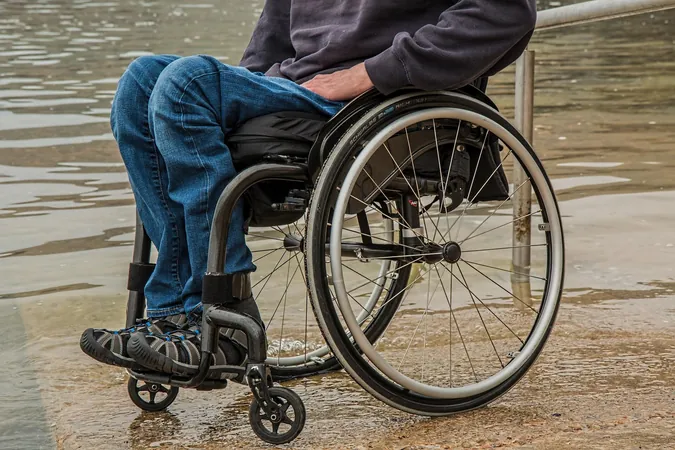
Rural Albertans with MS Face Care Disparities: Shocking Study Exposes Treatment Gaps
2025-04-15
Author: William
New Study Unveils Alarming Gaps in MS Treatment for Rural Patients
A groundbreaking study from the University of Alberta has revealed that Albertans living with multiple sclerosis (MS) in rural areas are significantly disadvantaged compared to their urban counterparts when it comes to accessing effective treatment. This disparity poses serious implications for their health and future.
Published in the journal Neurology, the study monitored the medical records of 4,593 MS patients between 2019 and 2020, with a stark divide showing 673 from rural settings and a whopping 3,920 from urban centers.
Stunningly, rural patients were found to be 17% less likely to receive any therapy aimed at controlling their condition and a staggering 26% less likely to be prescribed the most advanced treatments available.
The Consequences: Lives Impacted by Inadequate Care
Principal investigator Penny Smyth, a clinical neurologist and professor at the Faculty of Medicine & Dentistry, emphasized the dire consequences of neglecting proper treatment for MS. "Inadequate care leads to worsening conditions, which can force individuals to change jobs, rely on disability income, and endanger their ability to save for retirement," she warned.
Understanding Multiple Sclerosis: The Facts
MS is one of the most common neurological disabilities among young adults, characterized by the immune system's misfiring that attacks the protective sheath around nerves. Symptoms can range from loss of balance and impaired speech to severe fatigue and even paralysis.
The condition affects approximately 340 out of every 100,000 Albertans - one of the highest rates globally, highlighting the need for effective treatments.
The Roadblock: Treatment Accessibility for Rural Patients
The study unveiled that many effective drugs require infusions, which typically necessitate travel to urban centers. "Rural patients must not only visit specialists but also travel to obtain infusions, which can be unfeasible for those with lower socio-economic status or work commitments," explained Smyth.
Bridging the Gap: Future Directions in MS Care
The research team is committed to uncovering the specific barriers faced by rural MS patients, investigating how geographic and economic factors contribute to treatment disparities.
Encouragingly, advancements in MS treatment now include more accessible oral medications and home-based injections, alongside innovations in telehealth, allowing patients to connect with healthcare providers more seamlessly. Smyth expressed hope, stating, "Our goal is to empower patients to manage their condition effectively and lead fulfilling lives."
A Call to Action: Ensuring Comprehensive Care for All MS Patients
As the healthcare landscape evolves, it's paramount that we advocate for equitable treatment options for all patients, regardless of their location. With the right support and resources, individuals living with MS can achieve a brighter, healthier future.









 Brasil (PT)
Brasil (PT)
 Canada (EN)
Canada (EN)
 Chile (ES)
Chile (ES)
 Česko (CS)
Česko (CS)
 대한민국 (KO)
대한민국 (KO)
 España (ES)
España (ES)
 France (FR)
France (FR)
 Hong Kong (EN)
Hong Kong (EN)
 Italia (IT)
Italia (IT)
 日本 (JA)
日本 (JA)
 Magyarország (HU)
Magyarország (HU)
 Norge (NO)
Norge (NO)
 Polska (PL)
Polska (PL)
 Schweiz (DE)
Schweiz (DE)
 Singapore (EN)
Singapore (EN)
 Sverige (SV)
Sverige (SV)
 Suomi (FI)
Suomi (FI)
 Türkiye (TR)
Türkiye (TR)
 الإمارات العربية المتحدة (AR)
الإمارات العربية المتحدة (AR)